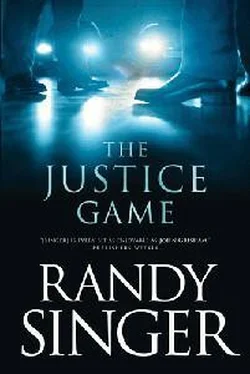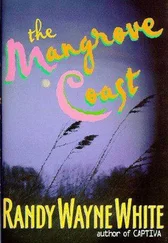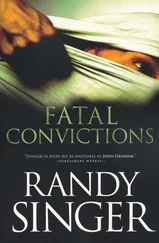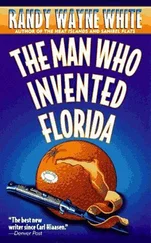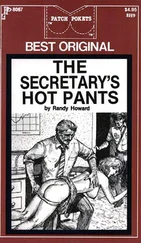Randy Singer - The Justice Game
Здесь есть возможность читать онлайн «Randy Singer - The Justice Game» весь текст электронной книги совершенно бесплатно (целиком полную версию без сокращений). В некоторых случаях можно слушать аудио, скачать через торрент в формате fb2 и присутствует краткое содержание. Жанр: Криминальный детектив, на английском языке. Описание произведения, (предисловие) а так же отзывы посетителей доступны на портале библиотеки ЛибКат.
- Название:The Justice Game
- Автор:
- Жанр:
- Год:неизвестен
- ISBN:нет данных
- Рейтинг книги:4 / 5. Голосов: 1
-
Избранное:Добавить в избранное
- Отзывы:
-
Ваша оценка:
- 80
- 1
- 2
- 3
- 4
- 5
The Justice Game: краткое содержание, описание и аннотация
Предлагаем к чтению аннотацию, описание, краткое содержание или предисловие (зависит от того, что написал сам автор книги «The Justice Game»). Если вы не нашли необходимую информацию о книге — напишите в комментариях, мы постараемся отыскать её.
The Justice Game — читать онлайн бесплатно полную книгу (весь текст) целиком
Ниже представлен текст книги, разбитый по страницам. Система сохранения места последней прочитанной страницы, позволяет с удобством читать онлайн бесплатно книгу «The Justice Game», без необходимости каждый раз заново искать на чём Вы остановились. Поставьте закладку, и сможете в любой момент перейти на страницу, на которой закончили чтение.
Интервал:
Закладка:
Garrison, however, was one step ahead. He had already discussed the case with his Republican cronies at the Christmas cocktail parties, being careful not to express a legal opinion about the merits. He had never owned a gun himself, preferring sailboats and golf clubs, but his friends all did. In their considered opinions, this was just a money grab based on a tragedy over which MD Firearms had no control. What was next? Suing beer and wine companies when a drunk driver caused an accident? Why not sue Boeing for manufacturing the planes that the terrorists flew into the World Trade Center?
Garrison couldn’t argue with them. He, too, thought the lawsuit was an abuse of the legal system. After all, hadn’t Congress already legislated these types of lawsuits out of existence?
A pro-business judge like him, especially one who believed in the Second Amendment, would dismiss this case so fast the lawyers (both of whom lived out of the area) wouldn’t even have time to figure out where the bathrooms were in the courthouse.
But when the file hit his office early on Friday afternoon, he ran into an unexpected snag. It seemed that the federal statute contained an exception for lawsuits based on aiding or abetting illegal activities. Crawford’s attorney was claiming that the manufacturer knew about the illegal straw purchases and did nothing to stop them.
Dismissing the lawsuit would not be as easy as Garrison had thought.
He decided to have a law clerk do some additional research over the weekend. Even in the absence of a federal statute, he could probably dismiss the case on the theory that a manufacturer couldn’t be held accountable for the criminal acts of a third party who was not acting as its agent.
On Monday, Garrison rushed through his morning docket, ate a quick lunch, and spent the afternoon digging into the case law the clerk had provided. Unfortunately, the law was murky. His gut told him to dismiss the case, but his head cautioned that he might get reversed. A seat on the Virginia Supreme Court was a long shot for any judge; getting reversed on this case would end all hope.
The rules didn’t allow cases to be dismissed at the pleadings stage unless there was no possible way the plaintiff could win even if everything he claimed in the lawsuit was true. Maybe Garrison should wait until further down the road, after the plaintiff produced his evidence at trial, and dismiss the case then. But if he did that, he would have to endure a wave of criticism in the meantime from the very party that had placed him in office.
By Monday evening, the news was out that the case had been assigned to him. Tuesday morning’s paper carried a feature story on Garrison, complete with quotes from local lions of the bar who called the judge “fair” and “evenhanded” and “exacting.”
A highly regarded big-firm lawyer named Mack Strobel summed it up best: “He’s no Lance Ito.”
Garrison shut his office door and read the article several times. There were a few sentences he might have written differently, but for the most part, the reporter got it right. Garrison came across as a no-nonsense judge in control of his courtroom.
He folded the paper and placed it carefully in his briefcase. He couldn’t use the office copier to make copies-someone might notice. He would stop at a Kinkos on the way home. The newspaper would yellow over time but the copies would maintain their color.
This wasn’t just another news story. He sensed that years down the road, in the scrapbook of his life, this story would take on pivotal importance. If he played his cards right, it could be his ticket to the Virginia Supreme Court.
And who deserved it more?
Part IV: Pretrial
29
On Friday, January 30, Jason picked up Case McAllister at the airport and headed to Virginia Beach Circuit Court for an 11:00 a.m. hearing. They had agreed that Jason would introduce Case, move for his admission to the Virginia Bar pro hac vice -for this case only-and Case would argue the motion. If the case ended up going to trial, Jason and Case would be co-counsel, with Jason taking the lead. But Case wanted to argue this first motion, and Case was paying the bills. Enough said.
On the way to the courthouse, Jason expected to talk strategy, but Case was more interested in talking football. He asked about Jason’s dad as well, and Jason gave him the CliffsNotes version of Christmas. His father took him out shooting, Jason said. A few days later, he’d picked up the MD-45 Jason had ordered. The father-son fights, of course, were none of Case McAllister’s business. Jason quickly changed the subject.
“When do you think I’ll be able to pick up my special order?” Jason asked, referring to his customized MD-45.
“Not long,” Case replied. “We were backed up for Christmas and haven’t caught up yet. Prototypes can take a while to produce.”
The Virginia Beach courthouse was a mammoth fortress attached to the city jail by an underground tunnel and located on the edge of a sprawling municipal complex composed of matching colonial-style redbrick buildings. Years ago, when the city complex had sprung to life in the southern, agrarian part of the city, it had been surrounded by cornfields. Now it was surrounded by housing developments, office buildings, and commercial establishments. Trees had been turned into asphalt parking lots, wildlife replaced by convenience stores and fast-food restaurants.
As they approached the building, Jason was surprised to see a small band of protestors wandering around, carrying signs, allowing themselves to be videotaped by the half-dozen television cameras. Jason knew this was a high-profile case, but all this attention at a Motion to Dismiss hearing seemed a little unusual.
At least the hardy band of protestors, who were braving temperatures in the thirties and a biting wind, appeared to be on his side. Two signs in particular caught his attention. We were meant to be armed-the Lord gave us a trigger finger. And another, neatly printed in large black letters for the TV cameras: God created men; MD Firearms made them equal.
Jason and Case walked past the protestors and cameras, their eyes straight ahead. As they were climbing the steps, Case taking his time because of the bum knee, Jason could have sworn he heard a protestor mumble something meant only for Case McAllister’s ears. It sounded like “Get ’em, Case,” though Case didn’t even acknowledge the man.
Case checked his sidearm at the courthouse metal detector like a real cowboy and exchanged small talk with the deputies. The two lawyers rode the escalators to the third floor and followed the signs toward Courtroom 8. When they reached the hallway outside the courtroom, Jason encountered his second surprise of the morning.
The place was crawling with people. They were pressing forward, trying to get a look inside past three beefy deputies who stood in the open doorway and formed a human blockade. Jason and Case elbowed their way through the crowd, and this time there was no mistaking it. Several folks said hello to Case, shook his hand, or wished him luck.
“You know these folks?” Jason asked.
“Kindred spirits.”
Case and Jason showed their bar cards to the deputies and were allowed into the courtroom. There were only a dozen or so wooden benches in the spectator section, but every seat was filled. A television camera-the “pool” camera that would relay the feed to local affiliates-was set up along one wall. The other walls were lined with people standing, surely a violation of some fire code.
The crowd was overwhelmingly white, overwhelming male, and overwhelming middle-aged. It didn’t take a genius to figure out that Case or some other person at MD Firearms had called the local gun enthusiasts and told them to rally the troops. Maybe he was trying to send a message to the judge. Maybe he was trying to influence the jury pool.
Читать дальшеИнтервал:
Закладка:
Похожие книги на «The Justice Game»
Представляем Вашему вниманию похожие книги на «The Justice Game» списком для выбора. Мы отобрали схожую по названию и смыслу литературу в надежде предоставить читателям больше вариантов отыскать новые, интересные, ещё непрочитанные произведения.
Обсуждение, отзывы о книге «The Justice Game» и просто собственные мнения читателей. Оставьте ваши комментарии, напишите, что Вы думаете о произведении, его смысле или главных героях. Укажите что конкретно понравилось, а что нет, и почему Вы так считаете.
